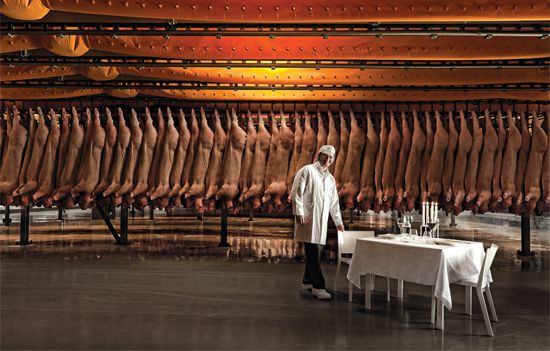The world’s largest pork exporter, Danish Crown, is being taken to court for greenwashing over its marketing claim that its bacon comes from “climate-controlled pigs”.
Danish Crown believe its reasoning is robust, claiming that it is striving to become “the world’s most sustainable and successful meat producer”, citing evidence showing that Danish farmers have already reduced the carbon footprint of pork sold by Danish Crown by 25 percent since 2005 and aim to hit 50 percent by 2030.
Academic greenwashing
However, these figures are based on an Aarhus University study paid for by Danish Crown itself.
Aarhus University has been accused of a similar, previous scandal in beef production. In 2019, it withdrew a study about the climate impact of beef when an investigation found that Danish Crown and Landbrug & Fødevarer, a Danish agricultural industry group, had influenced and co-written the report.
Experts point to a crucial flaw in the logic of the pork study, whilst campaigners argue that trying to claim that some meats are more carbon-friendly than others is muddying the whole debate around climate responsibility in the agricultural sector.
“A false impression”
The Aarhus study did not include emissions caused by indirect land use, such as the land used for producing fodder for the pigs.
“Indirect land use can account for up to 50 percent of the climate footprint of food production,” said life cycle assessment expert Jannick Schmidt from Aalborg University.
“If you omit indirect land use, you paint a false impression of a product’s total carbon emissions.”
This is particularly striking in Denmark, already one of Europe’s most cultivated (in terms of agriculture, not civilisation) countries, where around 65 percent of Denmark’s agricultural land – over half of the entire country – is used to grow fodder for farmed animals.
Pork lawsuit “very fitting”
The case has been filled by the Vegetarian Society of Denmark, the Climate Movement, and the green student movement Den Grønne Studenterbevægelse. Kristine Clement, the campaign lead of agriculture and forest at Greenpeace Denmark, which has lodged a complaint with the Danish Consumer Ombudsman, describes Danish Crown’s campaigns as “a clear case of greenwashing” and urges the company to withdraw them immediately.”
Rune-Christoffer Dragsdahl from the Vegetarian Society of Denmark hopes the lawsuit will discourage other meat companies from similar campaigns of greenwashing.
He regards the fact that Denmark’s first climate lawsuit involves a meat company as “very fitting” and notes that “animal agriculture is getting a special treatment while all other sectors have to pay the price and adjust.”
After all, the Danish government has established a clear course of action for industries such as transportation and energy to reach Denmark’s 2030 climate target, but nothing relating to agricultural emissions.















